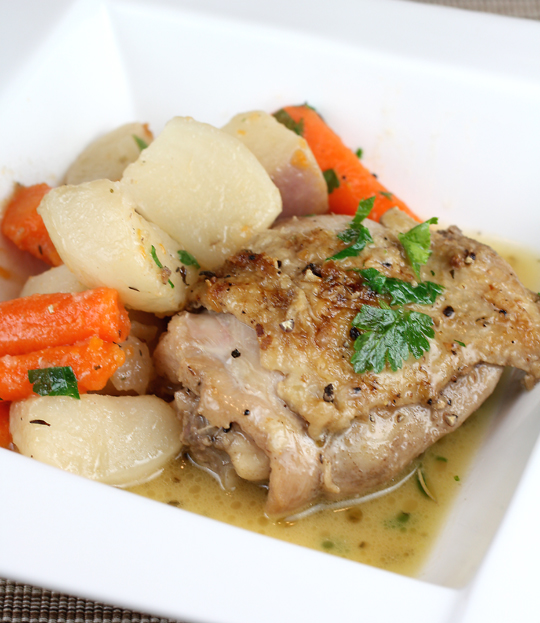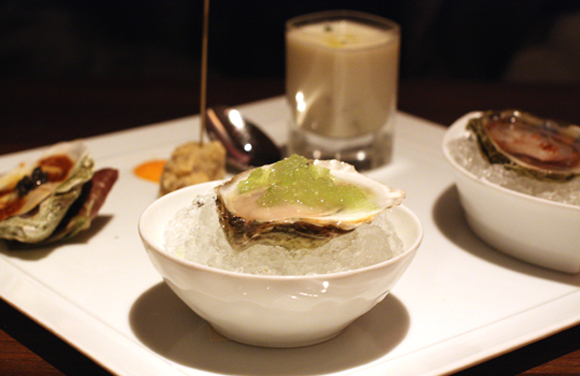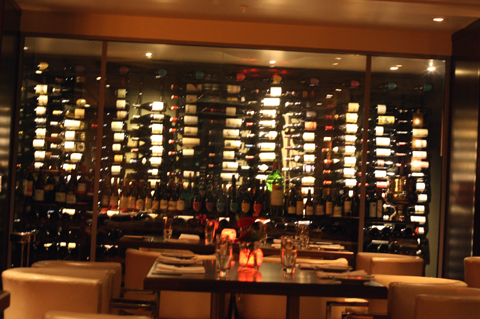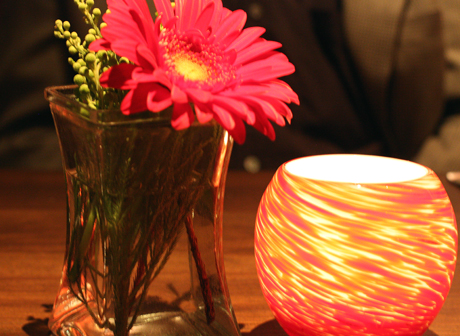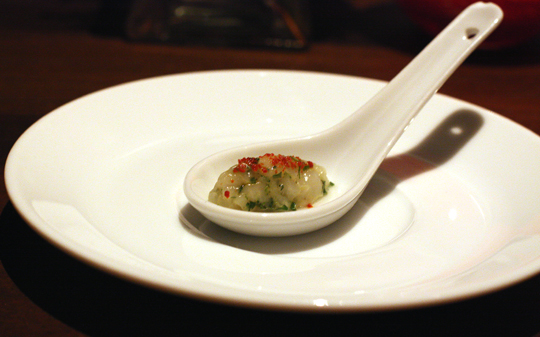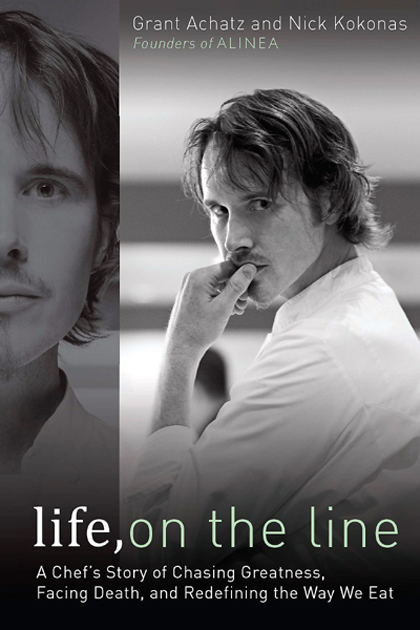
Next is the prophetic name of the new restaurant expected to open this spring in Chicago by acclaimed chef, Grant Achatz, of the James Beard Award-winning, Michelin three-starred Alinea.
Like his first Chicago ground-breaking sanctum to molecular gastronomy, Next also will challenge and provoke the definition of what a restaurant is by completely reinventing itself every three months with period-themed menus and decor, along with an audacious non-refundable ticketing system as the only option to snag a table there.
It’s bold. It’s daring. And it’s a miracle that it’s even possible.
After all, if you know Achatz’s story, you already realize that the odds were stacked against him far higher than the city’s iconic Sears Tower when he was diagnosed with tongue cancer four years ago at age 32. By the time it was caught, his squamous cell carcinoma was at stage 4. There is no stage 5.
Doctors told this chef and father of two young sons that he would die a painful death in mere months if he didn’t undergo radical surgery to remove his tongue and part of his jaw, which would leave him disfigured, unable to talk and without the ability to taste. Despite conventional thinking, Achatz decided to gamble on an alternative, experimental and brutal treatment of intensive, targeted chemotherapy and radiation that ended up saving his life.
His stunning story is recounted in his new memoir, “Life, on the Line: A Chef’s Story of Chasing Greatness, Facing Death, and Redefining the Way We Eat” (Penguin), which debuts March 3.
You can meet Achatz on March 17 in San Francisco, when he and his business partner and co-writer, Nick Kokonas will be signing copies of the book at 12:30 p.m. at Book Passage in the Ferry Building. Later that day, 5 p.m. to 6 p.m., they will also sign books at Omnivore in San Francisco. The talk they will hold afterward at Omnivore sold out days after it was announced.
Last week, I had a chance to talk by phone with Achatz on what it was like to reveal so much about himself in this book; his relationship with rival Chicago chef, Charlie Trotter; and his feelings on who might portray him in the feature film-version of his memoir, which may be directed, surprisingly, by David Dobkin of “Wedding Crashers” fame.
Q: Has your sense of taste returned fully now?
A: I believe so. Taste is a funny thing, though. If you go to an ophthalmologist, they can tell if your eyes aren’t working correctly. They can give you a prescription for glasses or contacts. Same with hearing. But taste is something you can’t measure.
To me, at least in my memory, my tasting ability is the same as it was pre-cancer. I would even argue that certain aspects resulting from the treatment helped me to taste better now. It doesn’t have to do with the physiology of it. It’s the mental thing. It’s learning what taste is and how it’s composed.
My ability to taste came back in pieces. I was down to under 130 pounds and I never used to drink coffee with sugar in it. But I did then to get calories. I’d put three giant tablespoons of sugar in my coffee. One day, I took a sip and I could actually taste the sugar. Up to that point, I couldn’t taste sweet at all. Then, three months later, I’d drink my coffee and say, ‘Damn, this coffee tastes bitter.’ And so, I could taste bitterness again. Having tastes come back in stages like that really teaches you about how they all relate to one another as they come together on the palate and function in relation to one another. It was a very informative process. I wouldn’t recommend it, though. (laughs) But it works for me.
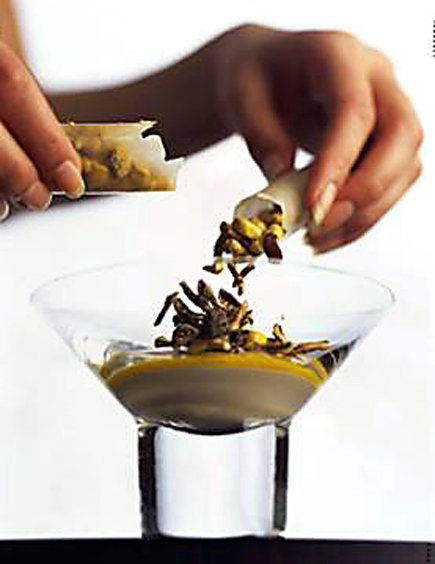
Q: How did your fight against cancer change you as a person and as a chef? Do you look at life differently now?
A: It does make you look at life differently. You have to make fundamental decisions. Different people handle things differently. Some people might say, ‘I need to reprioritize my life, spend more time with loved ones, and work less.’ When you face mortality, you undergo a self-evaluation of your life. I’m pretty happy with my life. I didn’t feel like I had to change anything. How lucky am I to get to go to work for 14-16 hours a day to do something I love? I probably do focus more now on my two young boys. And I make a more time now for relatives, and for my girlfriend. But on a whole, I really didn’t change anything.
I don’t think it made me more driven. My trajectory pre-cancer was such that I think I would be exactly what I am now even if the cancer had never happened.
Q: Did you ever think, ‘Why me?’
A: I had maybe a couple moments of that. But it was not a consistent feeling.
In the book, I reveal how I was sitting on the couch with my mother and she started to cry and I started to cry. She asked me what was wrong. And I thought, ‘What’s wrong??!’ I guess you could call it self-pity. I guess it was then that I thought it was unfair, that I was too young for all of this, that this was supposed to happen to old people. There was a sense of helplessness. That was my low point. I did nothing to deserve this. I wasn’t a chain-smoker; I wasn’t an alcoholic. So, I did ask myself, ‘Why me?’ It was probably only twice. That time with my mother and then when I was sitting with Heather (Sperling, his girlfriend who is the editor of the Tasting Table Chicago e-newsletter) after the diagnosis. I felt bad for her and for my boys.
Q: In the book, you state that your experience in working at the French Laundry in Yountville as a young cook essentially helped save your life. Can you expound on that?
Read more


